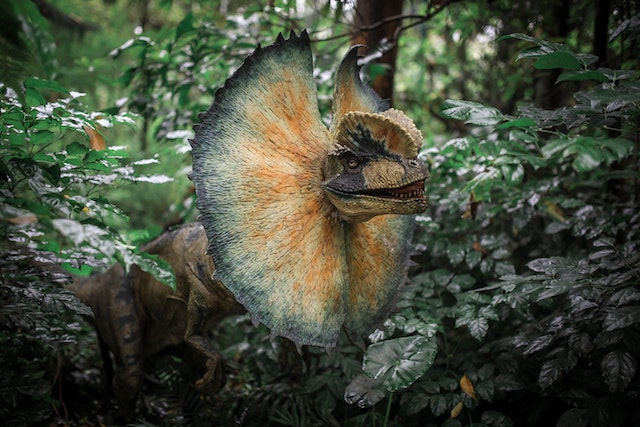Yes, climate change triggered by volcanic eruptions is believed to have played a role in prehistoric animal starvation and subsequent extinctions. Large volcanic eruptions can release massive amounts of gases and particles into the atmosphere, leading to significant changes in climate patterns on both regional and global scales. Here’s how volcanic eruptions can contribute to climate change and impact prehistoric animals:
1. Greenhouse Gas Emissions: Volcanic eruptions release gases such as carbon dioxide (CO2), methane (CH4), and sulfur dioxide (SO2) into the atmosphere. These gases can contribute to the greenhouse effect, trapping heat and leading to global warming. Increased temperatures can affect vegetation growth, alter ecosystems, and impact the availability of food sources for prehistoric animals.
2. Aerosol Particles: Volcanic eruptions also emit large quantities of aerosol particles, such as sulfate aerosols. These particles can remain in the atmosphere for an extended period, reflecting sunlight back into space and causing a cooling effect. This can lead to a drop in global temperatures and altered precipitation patterns, affecting the growth and distribution of plants that serve as food for prehistoric animals.
3. Acid Rain: Volcanic eruptions can release sulfur dioxide, which can combine with atmospheric moisture to form sulfuric acid. This acid can fall back to the Earth’s surface as acid rain. Acid rain can have detrimental effects on vegetation, reducing plant productivity and affecting the availability and nutritional quality of food sources for prehistoric animals.
4. Volcanic Winter: In some cases, volcanic eruptions can result in a phenomenon known as a volcanic winter. This occurs when significant amounts of volcanic ash and aerosols block sunlight, leading to a prolonged period of reduced solar radiation reaching the Earth’s surface. The resulting cooling can impact plant growth and disrupt ecosystems, leading to food shortages for animals.
These climate changes, triggered by volcanic eruptions, can disrupt ecosystems and alter the availability and quality of food resources. Prehistoric animals, like any other organisms, depend on a stable and sufficient food supply to survive and thrive. When volcanic eruptions induce significant climate changes, it can lead to food scarcity, malnutrition, and ultimately starvation for some prehistoric animal populations, potentially contributing to their extinction.
It’s important to note that volcanic eruptions are just one of several factors that can contribute to climate change and impact prehistoric animals. Other factors such as asteroid impacts, tectonic events, and long-term shifts in global climate patterns can also have significant effects on ecosystems and the survival of species.




